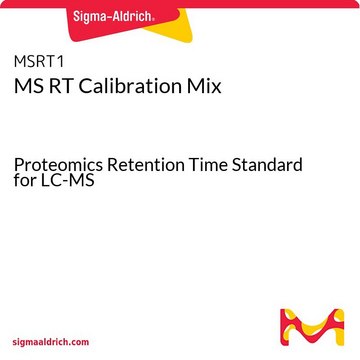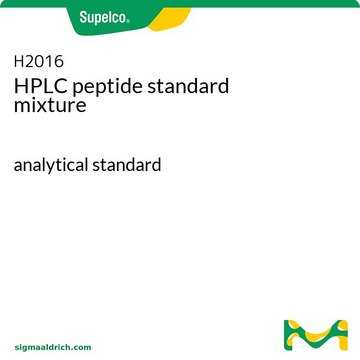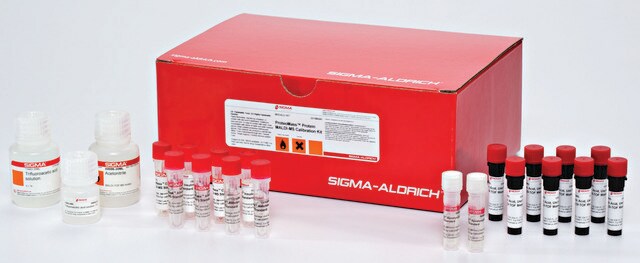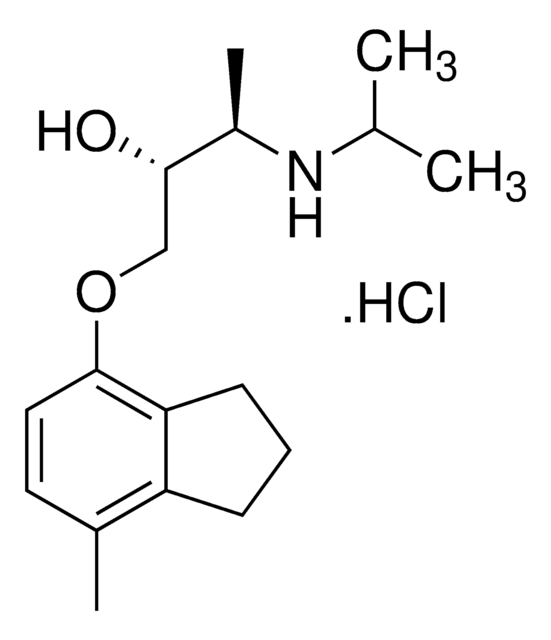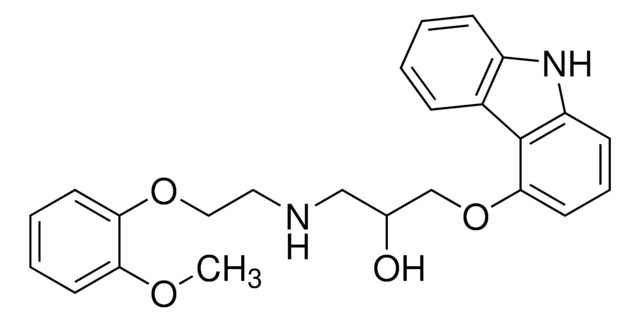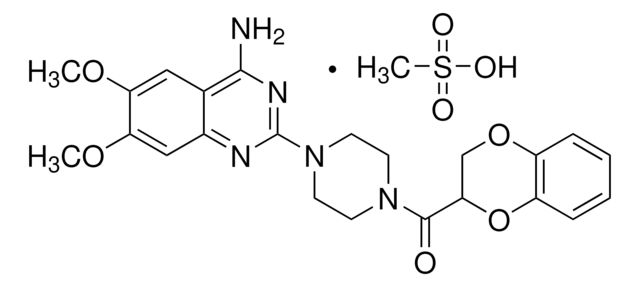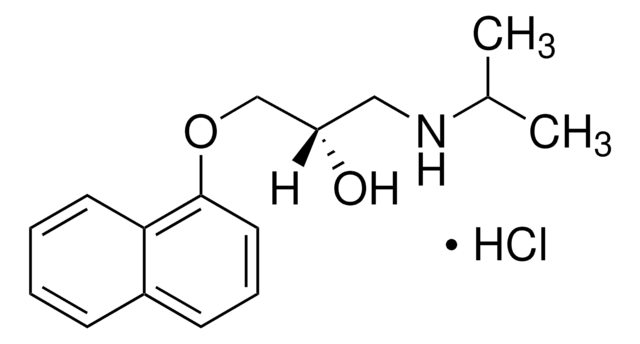N1915
Nebivolol hydrochloride
≥98% (HPLC)
Synonym(s):
Narbivolol, Nebilet, R-65824, rel-(aR,a′R,2R,2′S)-a,a′-[iminobis(methylene)]bis[6-fluoro-3,4-dihydro-2H-1-benzopyran-2-methanol] hydrochloride
About This Item
Recommended Products
Assay
≥98% (HPLC)
form
powder
storage condition
desiccated
color
white to off-white
solubility
DMSO: ≥20 mg/mL
originator
Forest Labs
storage temp.
room temp
SMILES string
Cl.O[C@@H](CNC[C@H](O)[C@@H]1CCc2cc(F)ccc2O1)[C@H]3CCc4cc(F)ccc4O3
InChI
1S/C22H25F2NO4.ClH/c23-15-3-7-19-13(9-15)1-5-21(28-19)17(26)11-25-12-18(27)22-6-2-14-10-16(24)4-8-20(14)29-22;/h3-4,7-10,17-18,21-22,25-27H,1-2,5-6,11-12H2;1H/t17-,18-,21-,22+;/m0./s1
InChI key
JWEXHQAEWHKGCW-BIISKSHESA-N
Looking for similar products? Visit Product Comparison Guide
Application
Biochem/physiol Actions
Features and Benefits
Storage Class Code
11 - Combustible Solids
WGK
WGK 3
Certificates of Analysis (COA)
Search for Certificates of Analysis (COA) by entering the products Lot/Batch Number. Lot and Batch Numbers can be found on a product’s label following the words ‘Lot’ or ‘Batch’.
Already Own This Product?
Find documentation for the products that you have recently purchased in the Document Library.
Customers Also Viewed
Our team of scientists has experience in all areas of research including Life Science, Material Science, Chemical Synthesis, Chromatography, Analytical and many others.
Contact Technical Service